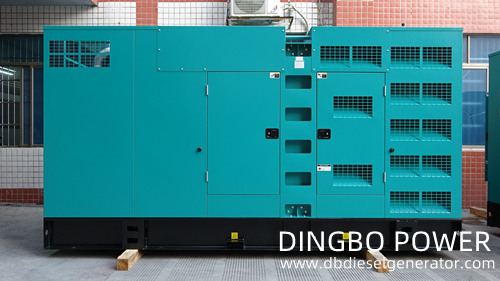dingbo@dieselgeneratortech.com
+86 134 8102 4441

- Home
- Products
- About Us
- Service
- News
- Technical Support
- Contact Us
dingbo@dieselgeneratortech.com
+86 134 8102 4441
Apr. 19, 2023
When using the diesel generator, the frequency of the diesel generator set is too low, which will cause many adverse effects. Therefore, in order to maintain the rated value of the generator frequency, we need to use reasonable maintenance methods of the diesel genset to make necessary frequency adjustment. So, what impact will the low frequency bring to the diesel generator set?
When the diesel generator set operates at low frequency, the turbine will produce mechanical vibration, and the turbine blades will be seriously damaged, which will do great harm to the turbine. Therefore, low-frequency protection should be installed on large steam turbines. The low-frequency protection consists of low-frequency measuring elements and a time accumulation calculator. Because the harm of low-frequency operation to the steam turbine is cumulative and related to the frequency decrease value and duration.
1. Low frequency operation of the generator set will increase the pressure borne by the turbine blades, cause resonance of the blades, shorten the lifespan of the blades, and even cause blade fracture.
2. The decrease in frequency causes a decrease in the rotational speed of the rotor, resulting in a decrease in the air volume blown in by the fans at both ends. The consequence is that the cooling conditions of the generator deteriorate and the temperatures of various parts increase.

3. During low-frequency operation of the generator, as the magnetic flux density of the generator increases, the core loss and excitation current of the transformer will increase. In order to not exceed the temperature rise limit, the transformer load has to be reduced.
4. When the generator operates at low frequencies, the ventilation capacity of the generator will decrease. In order to maintain normal voltage, it is required to increase the excitation current of the generator, so as to increase the temperature rise of the generator top and rotor. In order to not exceed the temperature rise limit, it is necessary to reduce the power generation capacity of the generator.
5. When the frequency decreases, in order to keep the terminal voltage constant, it is necessary to increase magnetic flux, which can easily saturate the stator core and cause magnetic flux to escape, causing local high temperatures in certain structural components of the machine base, and even sparks in some parts.
6. Since the potential of the diesel generator set is proportional to the frequency magnetic flux, if the frequency decreases, the magnetic flux must be increased to keep the potential unchanged. This will increase the excitation current, causing an increase in the temperature of the generator rotor winding.
The motor speed of the diesel generator set is closely related to the system frequency. The low frequency of the diesel generator set will affect the normal operation of the equipment, reduce the product quality, and even collapse the entire system. Therefore, in order to avoid the impact of the system frequency decline, we need to set it according to the rated frequency of the system, and adjust it in time when the frequency changes, which has an important impact on the stable operation of the diesel generator set.
The above is the impact of diesel generator set low frequency operation introduced by Dingbo Power. We hope it will be helpful to you. If you would like to know more about diesel generating set, please contact us by email dingbo@dieselgeneratortech.com.
Quicklink
Mob.: +86 134 8102 4441
Tel.: +86 771 5805 269
Fax: +86 771 5805 259
E-mail: dingbo@dieselgeneratortech.com
WhatsApp: +86 134 8102 4441
Add.: No. 10 Kechuang Road, High tech Zone, Nanning, Guangxi, China